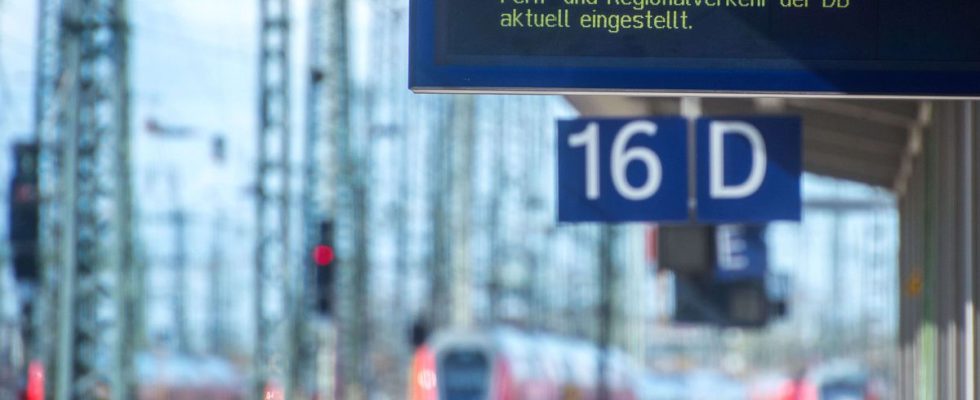A strike by railway workers in Germany brought almost all trains to a standstill on Friday morning to demand higher wages. This second rail strike in a month shows that “the will to fight (…) remains high” among employees, welcomed the EVG transport union in a press release. Employee representatives are demanding a 12% increase in wages or at least 650 euros over twelve months to offset the effects of inflation on purchasing power.
“More than 25,000 employees at around 1,800 sites” took part in the strike, according to the EVG, which represents the staff of the public rail operator Deutsche Bahn and some 50 transport companies in Germany. Employees were called to stop work until 11 a.m. but traffic was to remain disrupted until the evening on the main lines, warned Deutsche Bahn.
Multiplication of strikes
This strike is “useless” while wage negotiations are underway and proposals are on the table, said Friday Achim Stauss, spokesman for Deutsche Bahn. Due to the movement, “trains and stations are almost empty” in Germany, he lamented. The last strike on March 27 had paralyzed the entire transport sector, airports included, for 24 hours, at the call of EVG as well as the public services union, Verdi.
Verdi, which represents some 2.5 million employees, has also been leading tense negotiations with the State and the municipalities for several weeks. These discussions are due to resume on Saturday to try to reach a salary agreement. Wage strikes have multiplied in recent months in Germany, from schools to hospitals, including the Post Office. Inflation reached 7.4% in March year on year, with food prices increasing by 22.3%.

